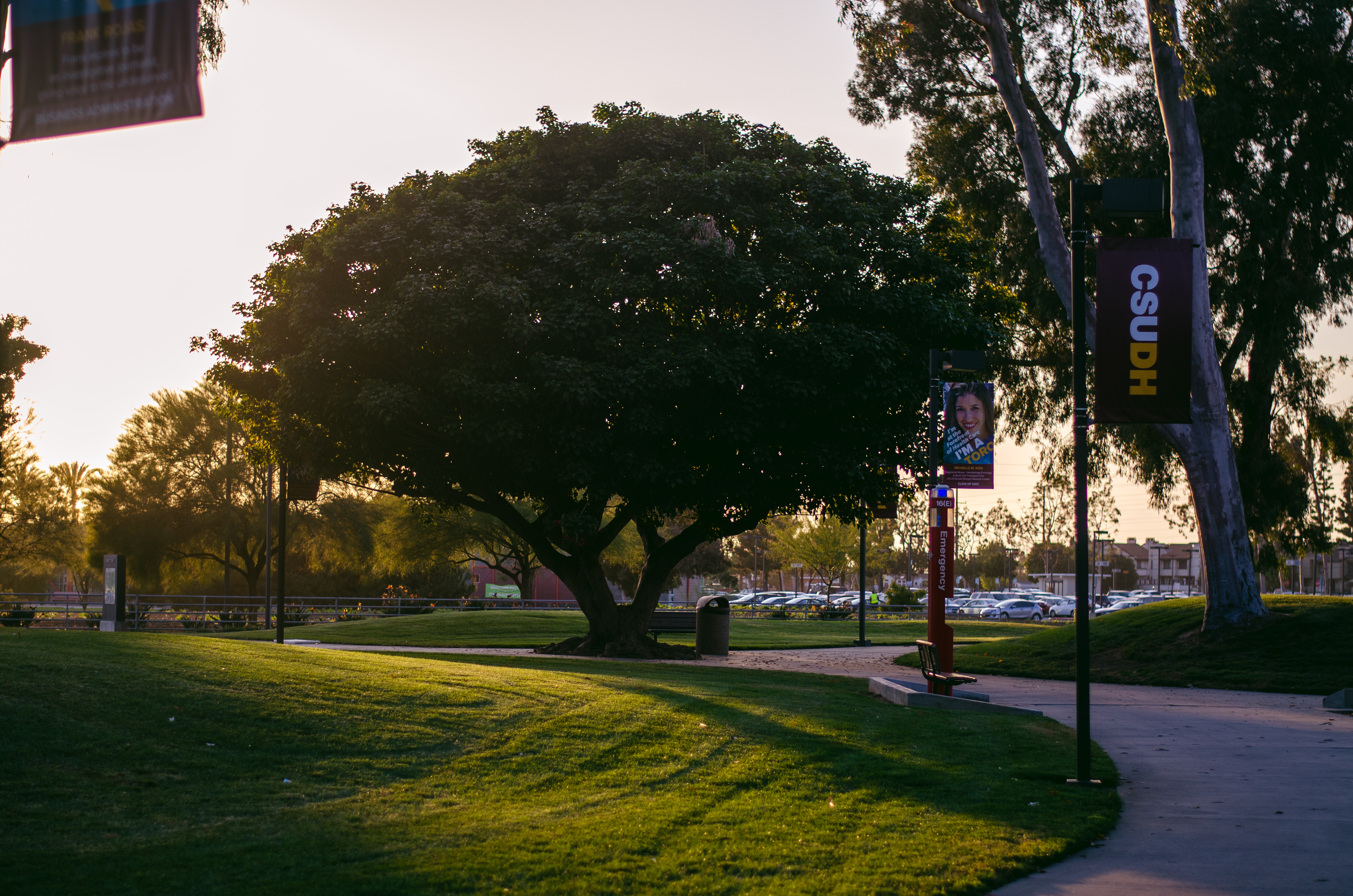By Jordan Darling
News Editor
Concerns over the fate of more than 100 trees, many of which are older than the campus, sparked discussion at the April 12 Academic Senate meeting, with some faculty members and CSUDH President Thomas F. Parham speaking for the trees; they needed to speak for the trees; for the trees have no tongues.
If you remember the well-beloved Dr. Seuss children’s book “The Lorax” then you know the Lorax spoke for the truffula trees and the bar-ba-loots. Well, The Lorax would be proud of our campus. Vice Provost Michael Spagna reported at the April 19 senate meeting that although 68 of the 123 trees in question, which include eucalyptus, lemon, coral and carawood species, had reached the end of their life cycles and will be removed , they will be replaced by 137 new trees native to California, including olive, date palm, jacaranda and desert willows. The other 55 will be conserved and protected and will remain in place.
That came as a relief to many, including Academic Senate Vice Chair Kate Esposito. She said at the April 12 meeting that concern over the fate of the trees with all the ongoing and pending construction on campus prompted her to talk to a couple of ground people, who told her many of the trees would have to be to cut down. President Parham told her that he would look into it, but did say that some would have to come down due to disease or space issues.
It turns out that while more than half of the existing trees will soon meet their maker in the Happy Tree Hereafter, the campus will plant a new one for each, meaning not only no net loss, but more trees than before.
The university was recently honored by the Arbor Day Foundation’s Tree Campus USA program for its tree conservation efforts. With four building projects either ongoing or starting soon, the campus Sustainable Landscape Committee developed a plan calling for replacements for every tree removed, and to increase by 25 percent the number of trees on campus by 2025. Additionally, many of the new trees will be native to California, meaning a more sustainable natural environment, as they do not absorb as much water as many non-native species.
Somewhere, the Lorax is smiling.


